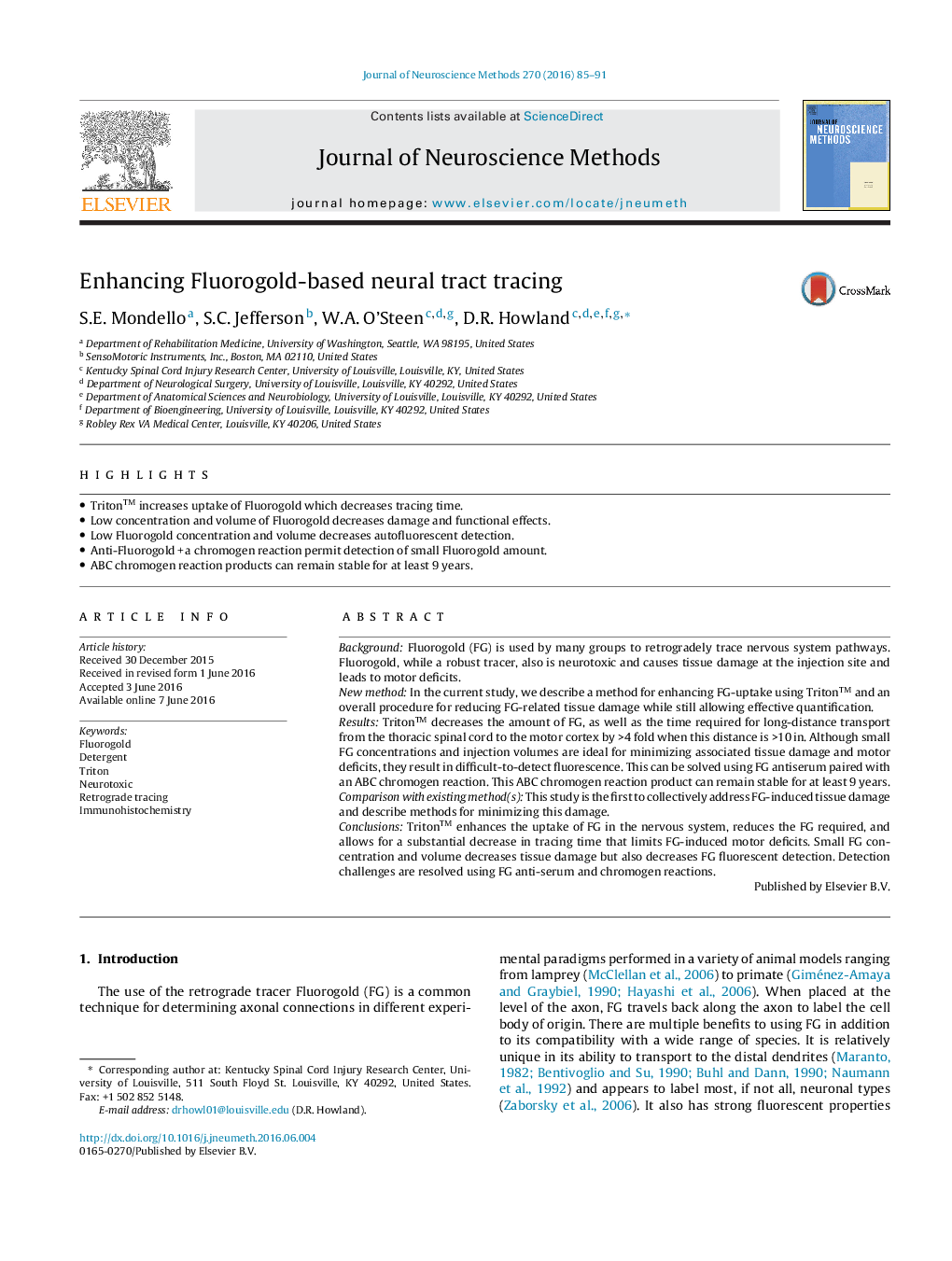| Article ID | Journal | Published Year | Pages | File Type |
|---|---|---|---|---|
| 6267573 | Journal of Neuroscience Methods | 2016 | 7 Pages |
â¢Triton⢠increases uptake of Fluorogold which decreases tracing time.â¢Low concentration and volume of Fluorogold decreases damage and functional effects.â¢Low Fluorogold concentration and volume decreases autofluorescent detection.â¢Anti-Fluorogold + a chromogen reaction permit detection of small Fluorogold amount.â¢ABC chromogen reaction products can remain stable for at least 9 years.
BackgroundFluorogold (FG) is used by many groups to retrogradely trace nervous system pathways. Fluorogold, while a robust tracer, also is neurotoxic and causes tissue damage at the injection site and leads to motor deficits.New methodIn the current study, we describe a method for enhancing FG-uptake using Triton⢠and an overall procedure for reducing FG-related tissue damage while still allowing effective quantification.ResultsTriton⢠decreases the amount of FG, as well as the time required for long-distance transport from the thoracic spinal cord to the motor cortex by >4 fold when this distance is >10 in. Although small FG concentrations and injection volumes are ideal for minimizing associated tissue damage and motor deficits, they result in difficult-to-detect fluorescence. This can be solved using FG antiserum paired with an ABC chromogen reaction. This ABC chromogen reaction product can remain stable for at least 9 years.Comparison with existing method(s)This study is the first to collectively address FG-induced tissue damage and describe methods for minimizing this damage.ConclusionsTriton⢠enhances the uptake of FG in the nervous system, reduces the FG required, and allows for a substantial decrease in tracing time that limits FG-induced motor deficits. Small FG concentration and volume decreases tissue damage but also decreases FG fluorescent detection. Detection challenges are resolved using FG anti-serum and chromogen reactions.
